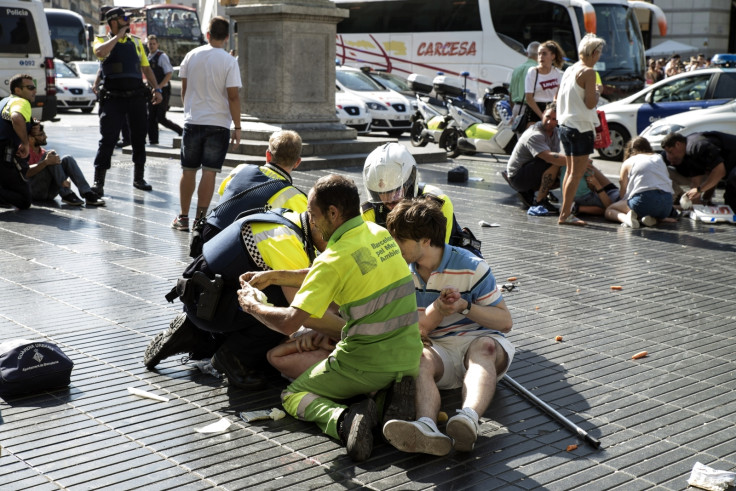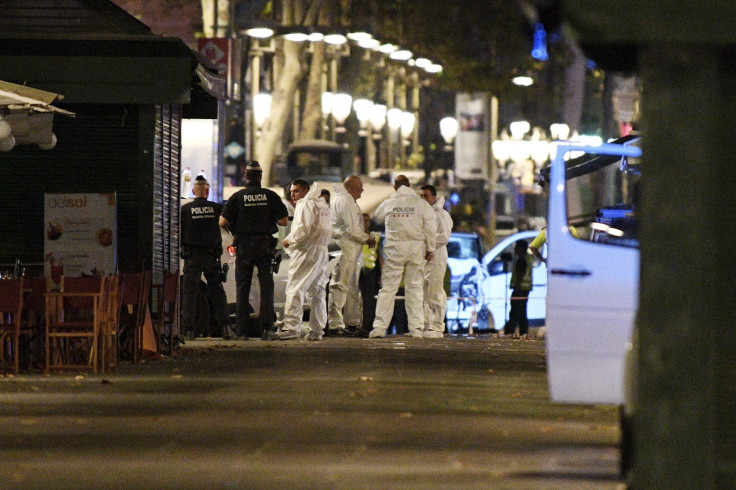Barcelona attack: French police fear Younes Abouyaaqoub may have crossed the border with Spain
French security officials on alert for rented Renault Kangoo utility vehicle that may have already entered country carrying Barcelona attacker.
French officials have increased security on the border with Spain amid fears the terror suspect behind the Barcelona van attack could slip into the country. A French security official also told Associated Press that Spain had flagged a Renault Kangoo utility vehicle – believed to have been rented by a suspect – that could have already crossed the border.
Spanish police are still hunting Younes Abouyaaqoub, a 22-year-old Moroccan thought to have been the driver in the 17 August attack in Barcelona, which left 14 dead and 120 injured.
He is the presumed ringleader of a 12-strong terror cell police say also orchestrated a similar vehicle attack in Cambrils early 18 August morning, which killed one woman and injured five other people.
The Islamic State group has claimed responsibility for both attacks. Police in Spain said they had effectively dismantled the terror cell, with all but one of its members in custody or dead.
The hunt for Abouyaaqoub has now led to fears the terror suspect could take advantage of passport-free Schengen border area to further evade police and slip into France.
Across the Pyrenees, French police have carried out extra border checks on people coming from Spain. Authorities fear the lone suspect on-the-run will try to cause as much violence as possible as he nears capture. "There is the danger they will not let themselves get caught and will do something dramatic," said Alain Chouet, a former French intelligence official.
Meanwhile, in Spain the investigation has focused on a house in Alcanar, 200 kilometres (125 miles) down the coast from Barcelona. Police say the terror cell was planning a more sophisticated, and potentially more deadly, attack by using the house to prepare an explosive device.
They are believed to have chosen a simpler approach in using vehicles after preparations went awry when an explosion ripped through the house on 16 August, killing up to two people.
Police have also carried out nine searches of apartments in Ripoll, the northern Catalan town where Abouyaaqoub and other suspects lived. This reportedly included a raid on an imam's home.
Spanish Interior Minister Juan Ignacio Zoido said the terror cell had now effectively been dismantled, with five suspects killed in Cambrils, four suspects in detention and up to two other members killed in Wednesday's explosion.

Among those killed in Cambrils is 17-year-old Moussa Oukabir, who had previously been named as a prime suspect in the Barcelona attack. His brother, Driss, reported his documents stolen to police in Ripoll. They were found in one of the vehicles used in the attacks, Ripoll's mayor confirmed.
The brothers were born and raised in Ripoll, where the family's first-floor apartment was searched on 18 August.
Neighbours said they were shocked by the news of Moussa Oukabir's alleged involvement. One teenager, who identified himself only by his first name, Pau, said they played together when they were younger and he was "a good boy".
In addition to the five people killed in Cambrils, police said they arrested two people Friday, after two arrests a day earlier. In custody are three Moroccans and one Spaniard, none with terrorism-related records.
"We are not talking about a group of one or two people, but rather a numerous group," regional Interior Ministry chief Joaquim Forn told Onda Cero radio. The sheer size of the cell recalled the November 2015 attacks in Paris, in which trained Islamic State attackers struck the national stadium, a concert hall and bars and restaurants nearly simultaneously.

Since then, the extremist group, also known as Daesh, has steadily lost ground in its self-declared caliphate in Iraq and Syria, most recently with its defeat in Mosul. "This shows there is no correlation between what is happening over there with Daesh and the operational capacity of the group," said Jean-Charles Brisard, a French security analyst.
The attacks have unnerved a country that hasn't seen an Islamic extremist attack since 2004, when al-Qaeda-inspired bombers killed 191 people in coordinated assaults on Madrid's commuter trains.
Unlike France, Britain, Sweden and Germany, Spain has largely been spared, thanks in part to a crackdown that has netted about 200 suspected jihadis in recent years.
On 19 August, Spain decided to maintain its terrorist threat alert at level 4, declaring that no new attacks were imminent. Interior Minister Zoido said the country would nevertheless reinforce security for events that draw large crowds and popular tourist sites.
© Copyright IBTimes 2025. All rights reserved.






















